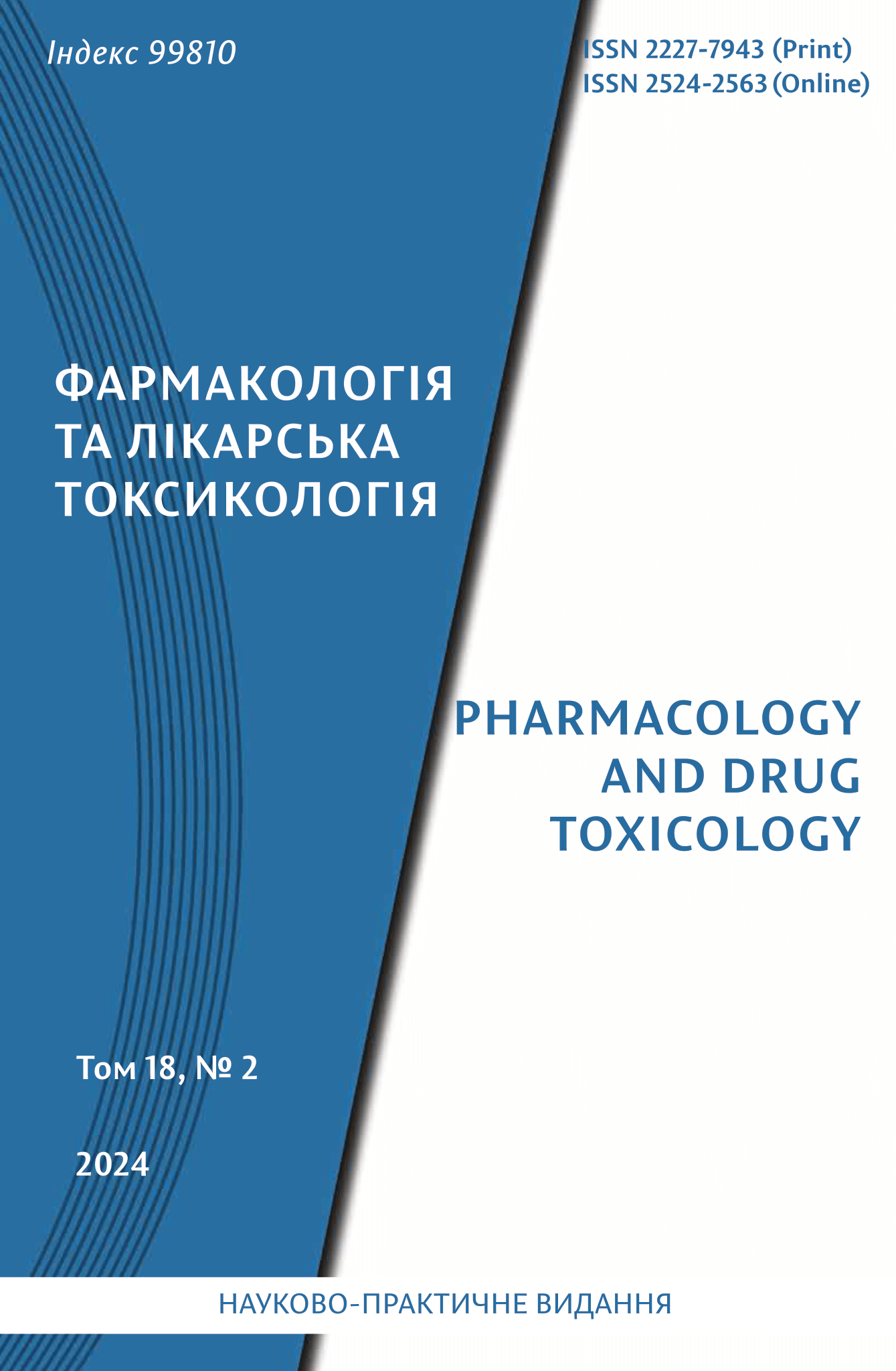Abstract
The article presents the results of the study of the main clinical and biochemical indicators of experimental thrombophlebitis in rabbits under administration of the herb extract of medicinal soapwort (Saponaria officinalis). According to medical statistics, thrombophlebitis is the most frequent complication of chronic venous insufficiency (CVI). Thrombophlebitis is diagnosed according to various data in 5–60% of patients with CVI. In the therapy of thrombophlebitis doctors usually prescribe medicinal preparations based on plant raw materials with a phleboprotective effect, capable of reducing the processes of thrombus formation.The
number of phleboprotectors in the pharmaceutical market of Ukraine and the world is extremely limited. Saponaria officinalis herb extract with a standardized content of saponins and flavonoids can be considered a promising object as a new phleboprotector.
The aim of the study was to research the possible phleboprotectivel effect of the herbal extract of the Saponaria officinalis (ETML) under the conditions of its prophylactic and therapeutic administration to rabbits with experimental thrombophlebitis.
Experimental thrombophlebitis was modeled on rabbits according to the standard method with an overlay of a ligature on the ear vein and followed by application of Lugol solution. The investigated ETML at a dose of 20 mg/kg and the comparison drug Eskuvit at a dose of 7.2 mg/kg (by escin) were administered daily intragastrically in prophylactic (for 7 days) and therapeutic mode (for 10 days).
It was established, that the therapeutic and prophylactic administration of ETML at a dose of 20 mg/kg probably reduced the size of the thrombus during the experiment and area of hemorrhage. ETML reliably restored peroxidation-antioxidant balance and normalized the indicators of the blood clotting system.The comparison drug Eskuvit was statistically significantly inferior to ETML by all studied indicators.
In conclusion, under the conditions of experimental thrombophlebitis, the therapeutic and prophylactic administration of ETML at a dose of 20 mg/kg has a powerful phleboprotective effect. ETML reduces the processes of thrombus formation in the vein, normalizes blood coagulation parameters and exerts powerful antioxidant effect.The phleboprotective effect of ETML statistically significantly exceeds the effectiveness of the comparison drug Eskuvit.
